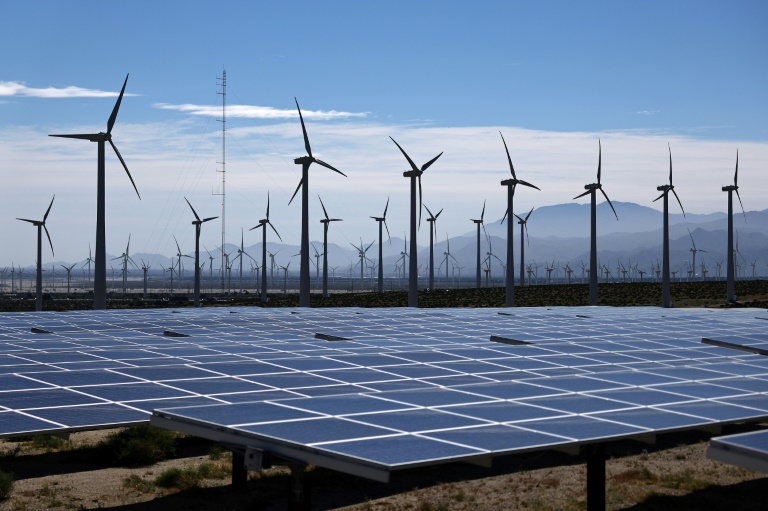Microsoft co-founder and billionaire philanthropist Bill Gates This week the company is hosting business executives and entrepreneurs in London to promote investment in cutting-edge technology that promises big progress in tackling climate change.
Participants include Arvin Ganesan, who worked in the Obama administration and at Apple before joining the race to develop the next generation of long-life batteries.
Future power grids will likely rely on more powerful batteries to store excess renewable energy for those times when the sun isn't shining and the wind isn't blowing.
Ganesan is CEO of Boston-based Force Power, which says its prototype can store weeks of energy at a fraction of the cost of industry-standard batteries.
AFP met Ganesan to talk about innovation, investment and why he doesn't believe in “climate pessimism”.
The following has been condensed and edited for clarity.
– What problem is your company trying to solve? –
“If you want low-cost renewable energy, you need very cheap storage, otherwise fossil fuels will remain an always-available source of power. You can't make large amounts of renewable energy work on the grid unless you address price and scalability. And that's what Fourth Power does.”
– Is there any effect? -
“I left Apple to come to this company. This isn't a hope or a dream. There's a lot of work to do, but this is just an economic experiment, and the equation is actually very simple.
“For the first time in my lifetime, and for the first time in a generation, we're going to see load growth all over the world because of data centers, AI, electric vehicles, and that growth is expected to be massive.”
“If the cost of renewables plus storage was lower than the cost of building a new gas power plant, then, putting philosophy and climate change aside, renewables and storage would always be deployed. So you need to have very focused cost targets to make that equation work.”
– Your company was funded by Gates, but so were other battery startups. Do you think you'll survive?
“The competition shouldn't be between four or five companies fighting for a tiny share of the pie. It's about all of these companies being able to offer something cheaper than new natural gas, so they can all be successful.”
“Every company doing long-term storage here has a different approach. We are particularly focused on cost, scalability and flexible duration. Our batteries can go from five hours to 500 hours depending on the customer's needs.”
“A rising tide floats all boats, so I don't think there's any competition between these companies. It's not just a battle between the four of us, it's a battle for a bigger pie.”
– This isn't just about the climate. Investors want to profit from the next big thing.
“Exactly. I think this fits into existing market trends of allocating capital to technologies that solve problems. I think that's why there's optimism. These companies have customers, there's a market, and this doesn't feel like a lab experiment.”
– Is investor interest in climate technology increasing? –
“I think the market is investing quite heavily in climate tech solutions. Success will come when the category of climate tech disappears and people start thinking of it simply as a good investment. We're starting to see that here. It's very exciting and it's a good opportunity. There are interesting people with deep, serious backgrounds who are solving important existential problems.”
– Are you optimistic about the future?
“Climate pessimism is a problem. It discourages people. But when you come here and look at a bunch of companies, a lot of them will go under in the next three or four years. These represent some pretty big changes for the system. It's a really amazing moment to see that.”
“I think a lot of it has to do with storytelling. In the US, people spend less than 10 minutes a year thinking about their electricity and rarely pay attention to anything other than how much they're paying and whether or not their power is on. But behind the scenes, big change is happening.”
“If that change creates a cleaner, more resilient, more reliable power grid, then it gives people hope that technology can actually solve the problem. I think it's a really good thing to convey that optimism.”
“I've been working on climate issues for a long time, and I encounter waves of asking myself, what on earth am I doing here? What's the future going to be for my children?”
“But even if the politics are awkward, carbon emissions are going to peak in the next year or two. And there are trends in the market pushing for cleaner technologies, which is something to be happy about.”
np/give/rl

